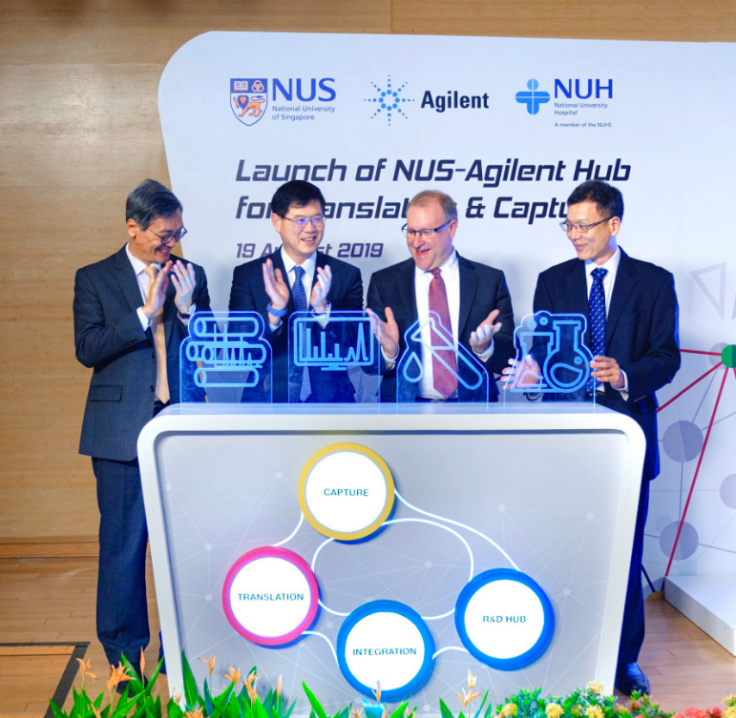
The National University of Singapore (NUS) joined hands with Agilent Technologies, a global leader in life sciences and National University Hospital (NUH) to establish country's first integrated translational R&D hub which leverages on biochemical innovation and research data analytics to develop new methods of translating clinical research into clinical diagnostics to strengthen the health sector.
Associate Professor Benjamin Ong, Director of Medical Services of the Ministry of Health has launched the NUS-Agilent Hub for Translation & Capture.
The NUS-Agilent Hub comprises laboratories located in NUS and NUH. The research hub also provides 1,000 square metres of research space to facilitate multi-disciplinary collaborations among scientists, clinicians and industry partners.
NUS and Agilent hope that through research in areas such as lipidomics and synthetic biology, innovative ways can be used to enhance the accuracy of clinical diagnostics based on the collected data from patients' blood samples.
As per the road map, the initial research focus areas are cardiovascular disease and diabetes, which are responsible for 30 percent of all deaths in Singapore in 2017, and affected 440,000 adults of the country in 2014 respectively.
The collaboration of NUS, Agilent and NUH is believed to be extremely helpful as they will conduct joint research in important areas involving health issues and medical science.
NUS President Professor Tan Eng Chye said that the partnership "builds on NUS' strengths and focus in biomedical sciences and translational medicine, the state-of-art mass spectrometry technology at Agilent and clinical expertise at NUH."
The CEO and the President of Agilent Technologies, Mike McMullen said that such collaborations will not only important to deliver significant benefit to their company and the customers but also to the university "the people of Singapore and eventually people around the world who will benefit as a result of the work that will be conducted at NUS."
In addition, Associate Professor Eugene Liu at NUH said, "We need new diagnostics to be tested and scaled up when successful," and this recent collaboration "enables NUH to apply emerging technologies from the university and industry to improve clinical laboratory testing."










